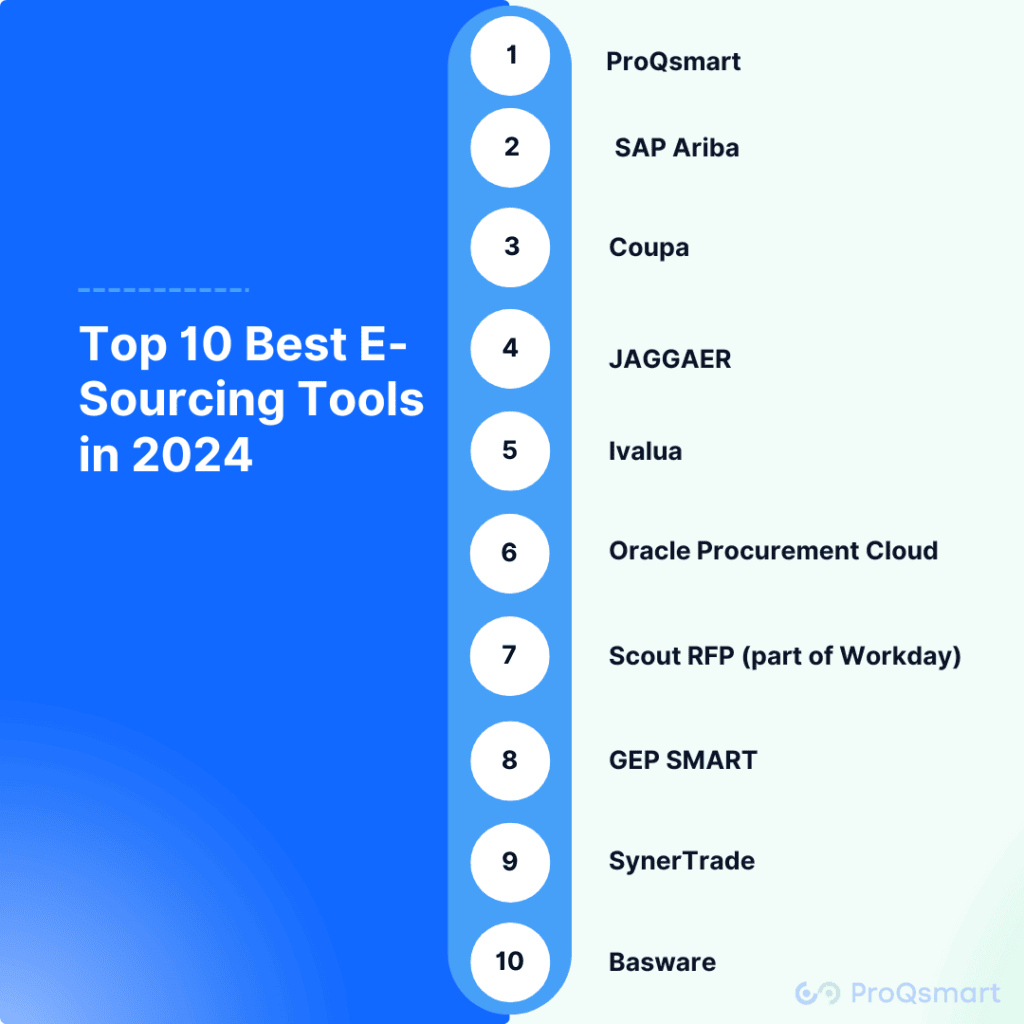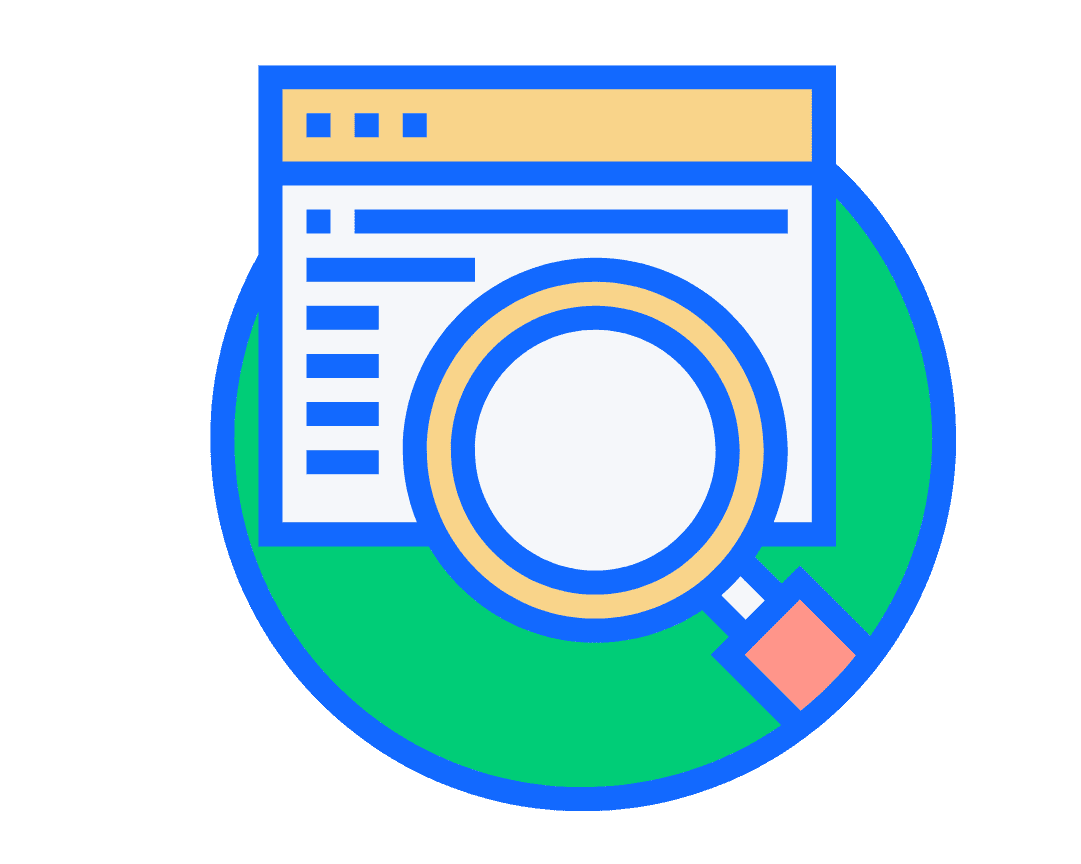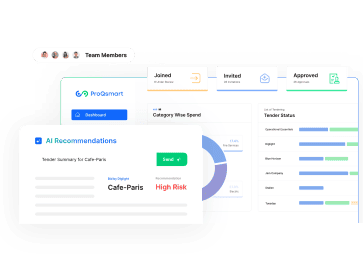E-sourcing tools have become indispensable in modern procurement strategies, offering sophisticated platforms to streamline sourcing activities, enhance supplier relationships, and optimize cost efficiency. Here, we delve into the top 10 e-sourcing tools, highlighting their features, benefits, and limitations to help businesses choose the best solution for their needs..

1. ProQsmart
ProQsmart leads the pack with its intuitive design that streamlines the sourcing process through automation and centralized data management. It caters to businesses seeking comprehensive insights and control over their procurement activities.
Features
ProQsmart stands out with its comprehensive suite of procurement functionalities, including automated bid management, advanced analytics, and real-time collaboration tools.
Benefits
It enhances procurement efficiency, improves transparency, and reduces time-to-market, making it an excellent tool for businesses aiming to optimize their sourcing strategies.
Limitations
The platform’s extensive features may require a learning curve for new users to fully utilize its capabilities.
2. SAP Ariba
SAP Ariba is a global procurement platform known for its extensive supplier network and deep integration capabilities. It offers end-to-end procurement solutions that help businesses manage spending and improve supplier relations.
Features
SAP Ariba offers a robust networked procurement platform that integrates the entire buying process across organizations.
Benefits
Its extensive network connects with millions of suppliers globally, providing scalability and extensive market reach.
Limitations
The complexity and cost of implementation can be high, particularly for smaller businesses.
3. Coupa
Coupa provides a unified, cloud-based spend management platform that integrates procurement, invoicing, and expense management to deliver “Value as a Service” to organizations looking to control their spending.
Features
Coupa’s e-sourcing tool provides comprehensive spend management capabilities, contract management, and procurement analytics.
Benefits
It offers real-time visibility into procurement spending and savings, which can help in making informed sourcing decisions.
Limitations
Some users report challenges with customization and integration with existing ERP systems.
4. JAGGAER
JAGGAER offers advanced, tailored procurement solutions that support the full spectrum of procurement activities. Known for its sector-specific configurations, it suits complex industries such as manufacturing and education.
Features
JAGGAER specializes in direct and indirect procurement, featuring advanced supplier management and sourcing analytics.
Benefits
The tool is highly customizable and is particularly strong in handling complex procurement requirements.
Limitations
The user interface may not be as intuitive as some of its competitors, which can impact user adoption.
5. Ivalua
Ivalua is versatile in handling everything from sourcing to contract management and procurement analytics. Its platform suits enterprises looking to customize and scale their procurement operations extensively.
Features
Ivalua is known for its flexibility and breadth of procurement solutions, including spend analysis, supplier management, and e-sourcing.
Benefits
It supports a wide range of industries with its adaptable platform, making it suitable for businesses with diverse and evolving procurement needs.
Limitations
The initial setup and customization can be resource-intensive.
6. Oracle Procurement Cloud
Part of Oracle’s comprehensive cloud suite, Oracle Procurement Cloud offers solutions that help organizations improve their spend management, enhance supplier collaboration, and drive better financial performance.
Features
This tool offers a complete suite of applications for automating and managing procurement processes.
Benefits
It integrates seamlessly with other Oracle Cloud applications, providing a unified platform for all procurement activities.
Limitations
It may entail a significant investment, making it less accessible for smaller organizations.
7. Scout RFP (part of Workday)
Scout RFP is designed to improve business agility with its streamlined RFP management and procurement processes. It is known for enhancing user experience and collaboration across procurement teams.
Features
Scout RFP focuses on streamlining the sourcing and supplier engagement process.
Benefits
Its user-friendly interface and effective project management tools make it easy to manage RFPs and supplier interactions.
Limitations
It may lack some deeper customizations and integrations offered by more comprehensive platforms.
8. GEP SMART
GEP SMART merges AI technology with unified procurement software to deliver a cloud-native procurement platform that offers complete purchasing solutions to enterprises of all sizes.
Features
GEP SMART combines purchasing and procurement processes into a single unified platform, with strong spend analysis and procurement planning.
Benefits
It offers a cloud-native solution with strong mobile support, enhancing accessibility and convenience for users.
Limitations
Smaller companies might find the system too expansive for their needs.
9. SynerTrade
SynerTrade accelerates digital procurement strategies through its flexible and comprehensive platform, supporting businesses in over 100 procurement processes enhanced by digital applications.
Features
SynerTrade provides a digital procurement platform that covers the entire purchasing process, from source to pay.
Benefits
The tool excels in digitalizing complex procurement processes and offers extensive customization options.
Limitations
The wide range of features might overwhelm smaller teams or less complex procurement operations.
10. Basware
Basware is a leader in networked procurement solutions, offering tools that provide greater financial visibility and simplify operations, all while fostering sustainable spending practices.
Features
Basware offers e-procurement solutions that focus on providing transparency across the procurement and invoicing processes.
Benefits
It helps companies achieve cost savings through automated procurement processes and improved compliance.
Limitations
The platform can be complex to implement, requiring significant time and resources.
Conclusion
Choosing the right e-sourcing tool requires a careful assessment of your business’s specific needs, challenges, and goals. Whether it’s the comprehensive capabilities of ProQsmart, the extensive network of SAP Ariba, or the user-friendly interface of Scout RFP, each tool offers unique advantages and some limitations. By understanding these dynamics, businesses can better position themselves to make strategic decisions that enhance their procurement operations and drive overall success.


